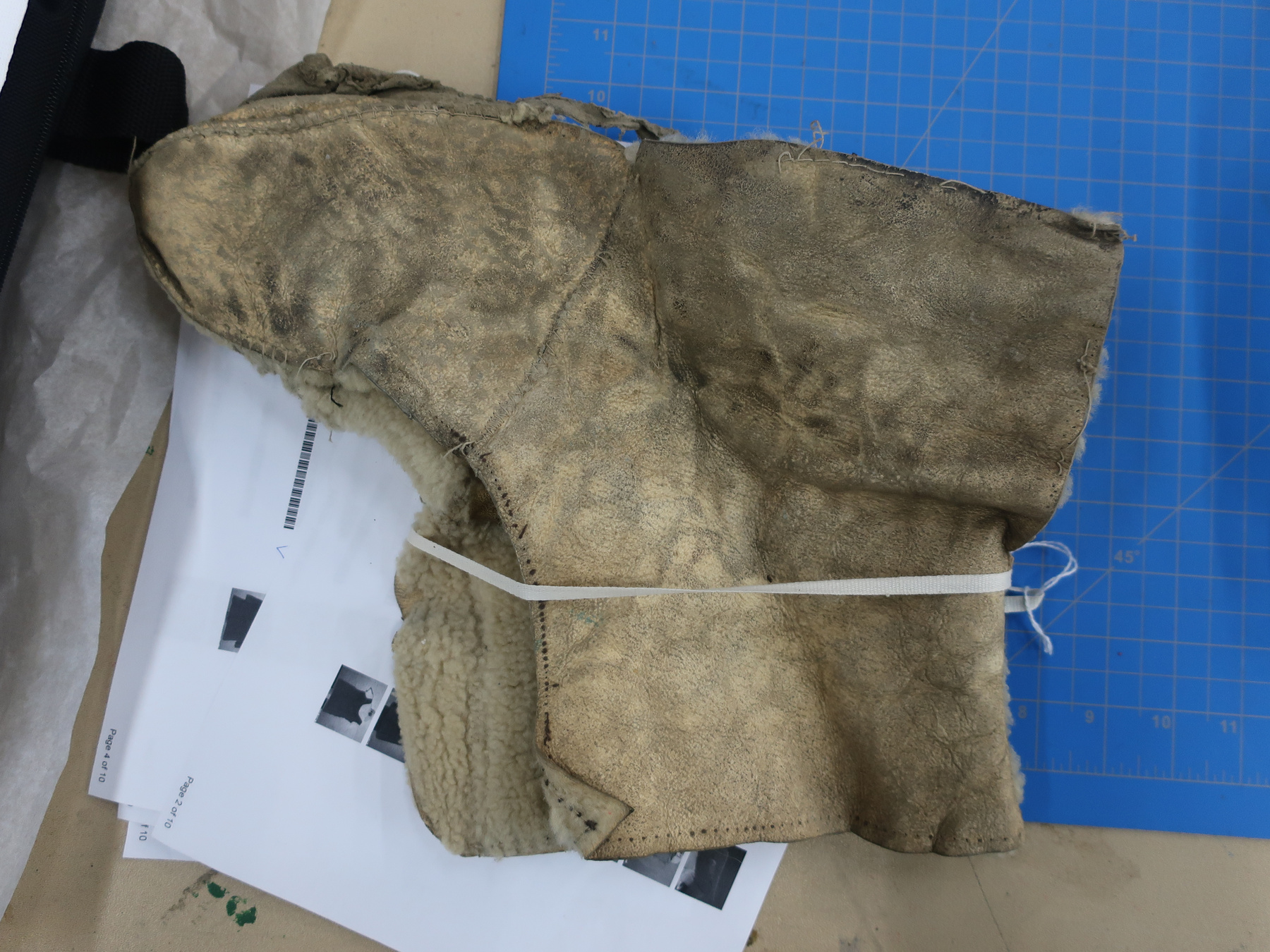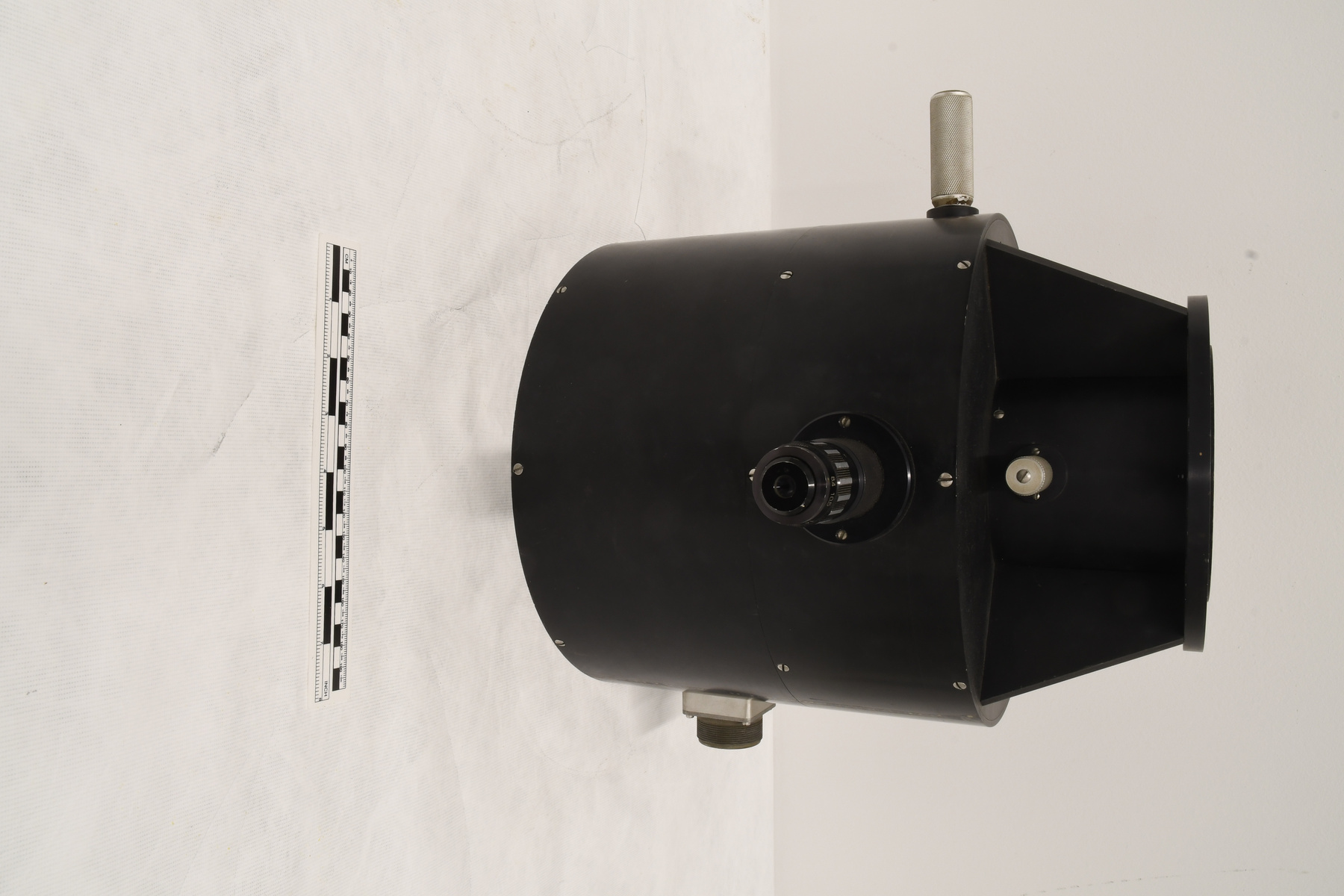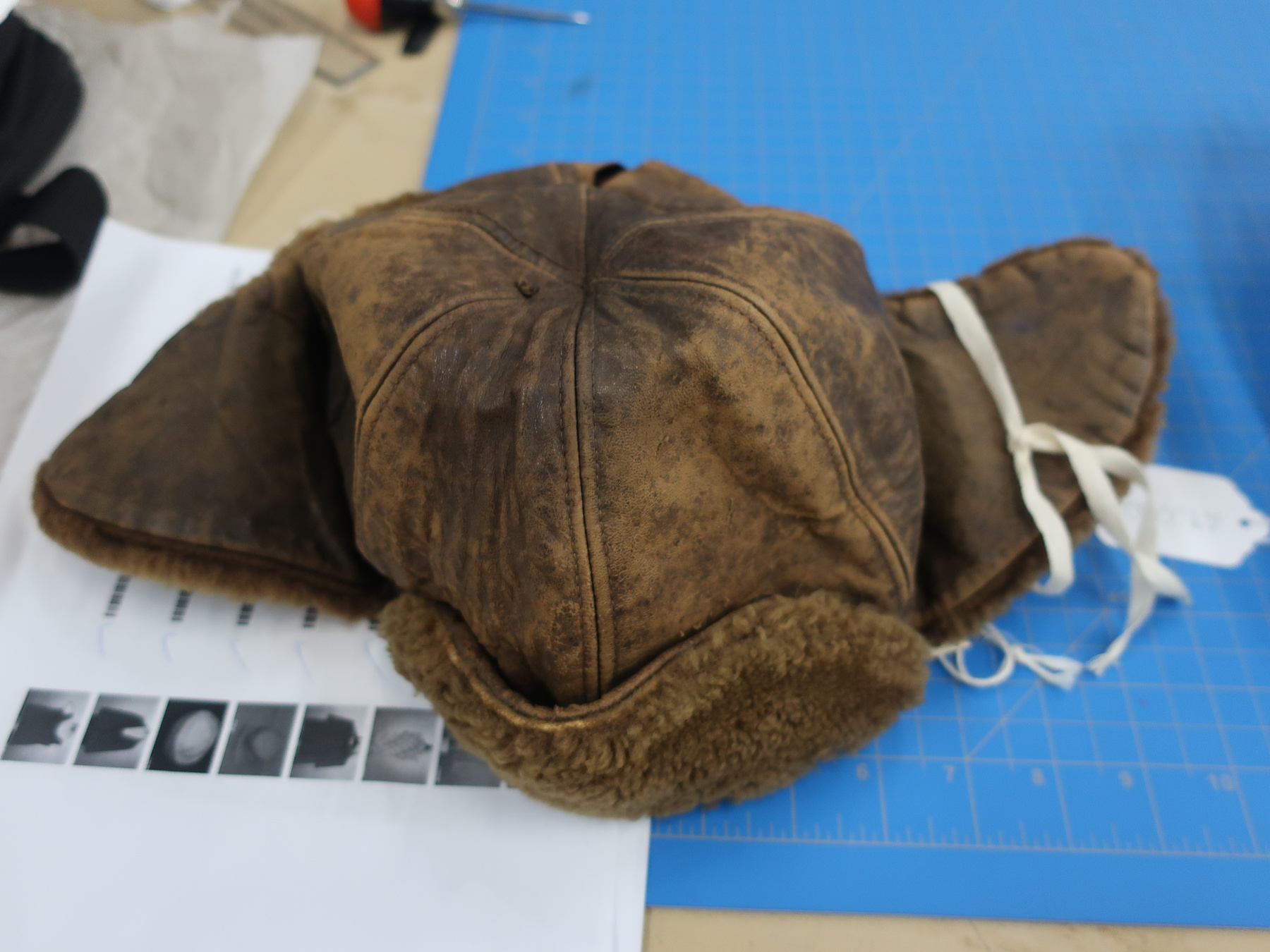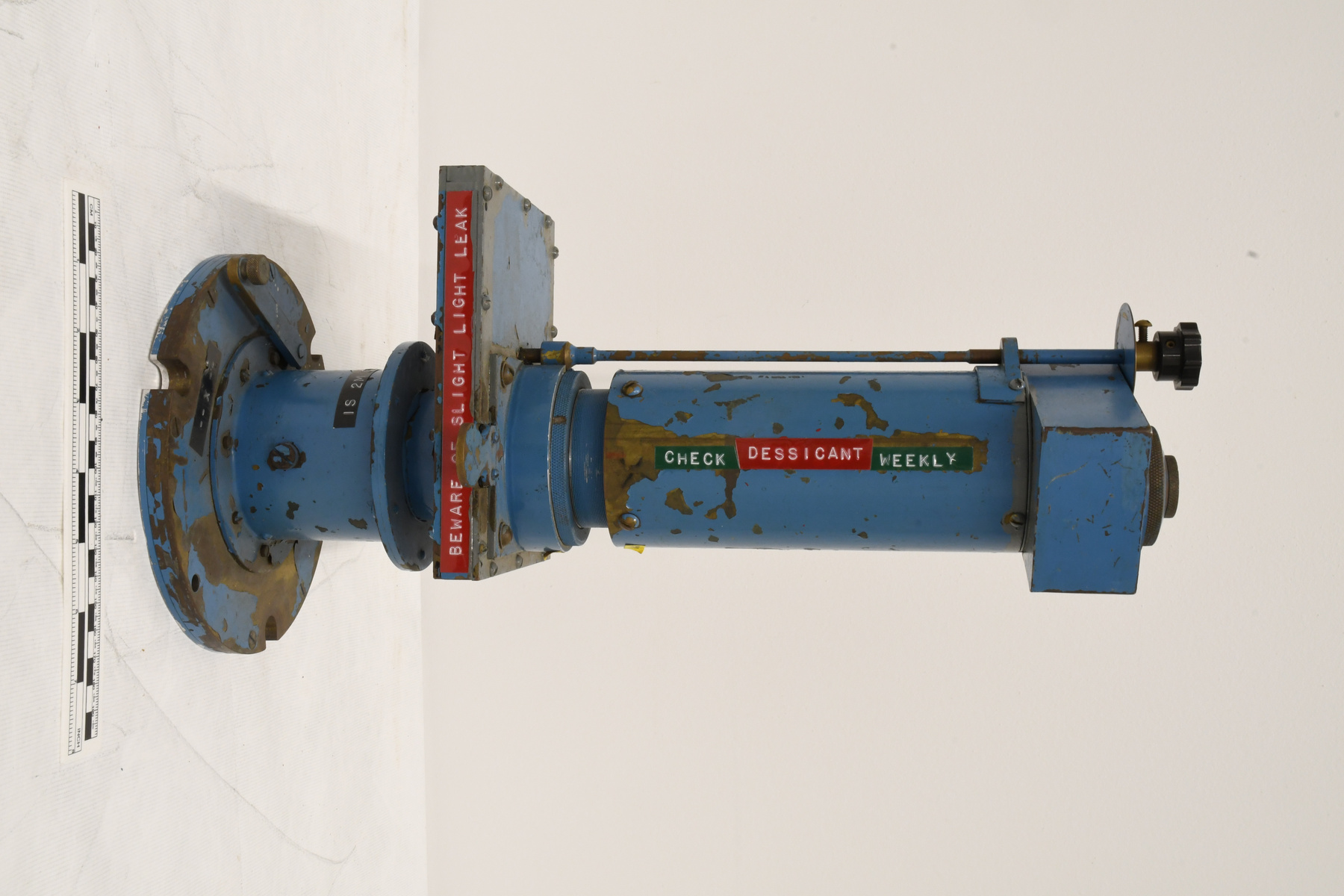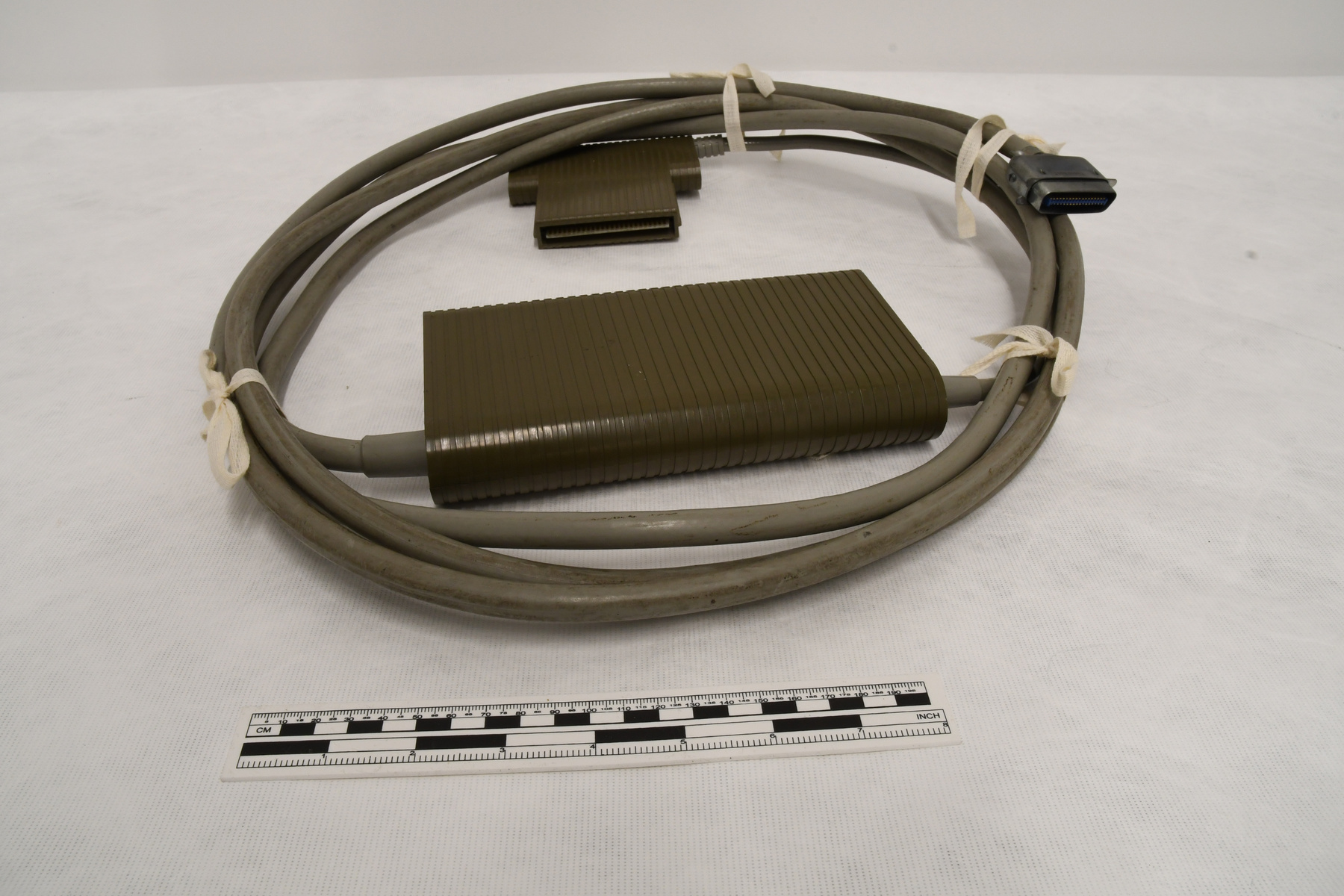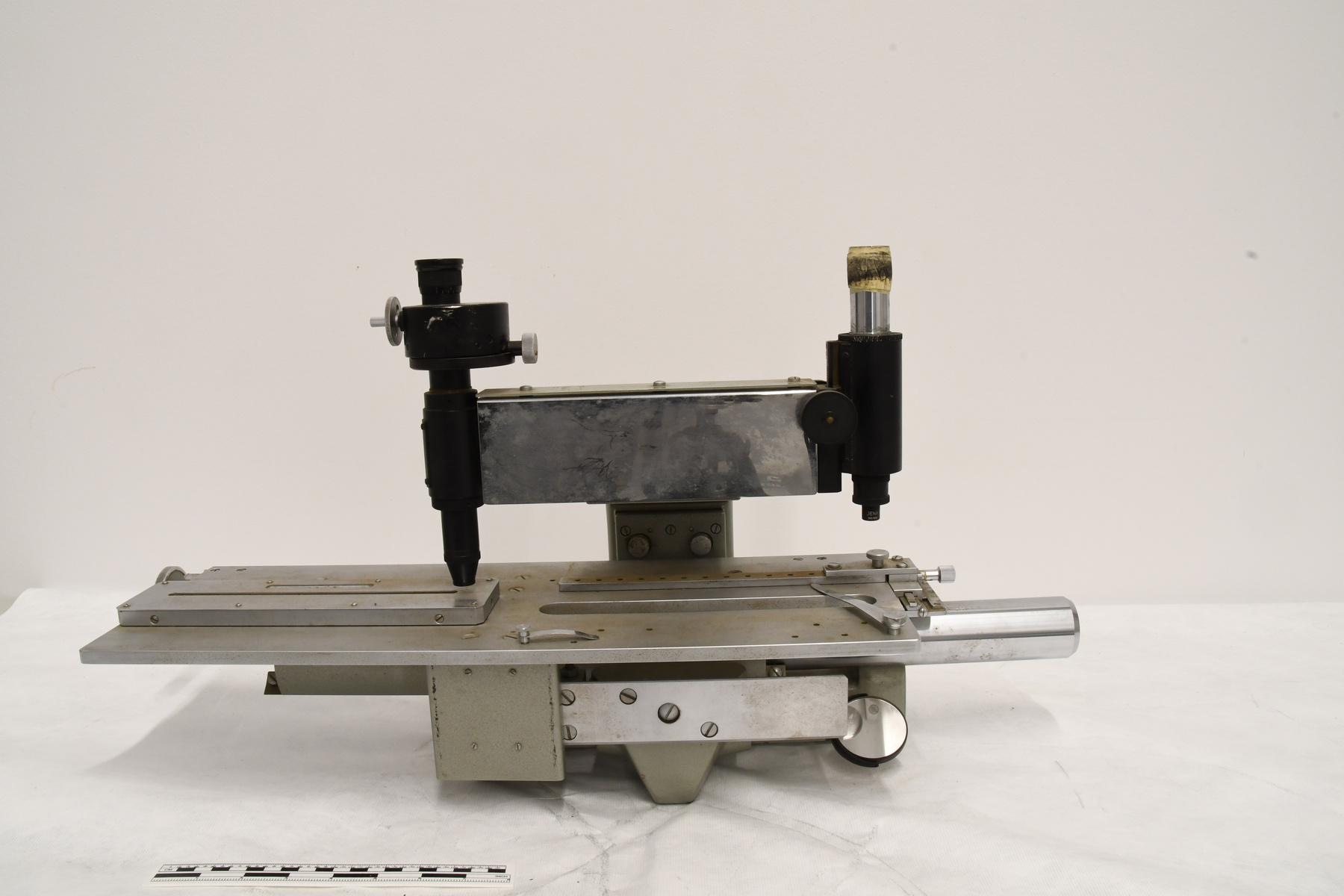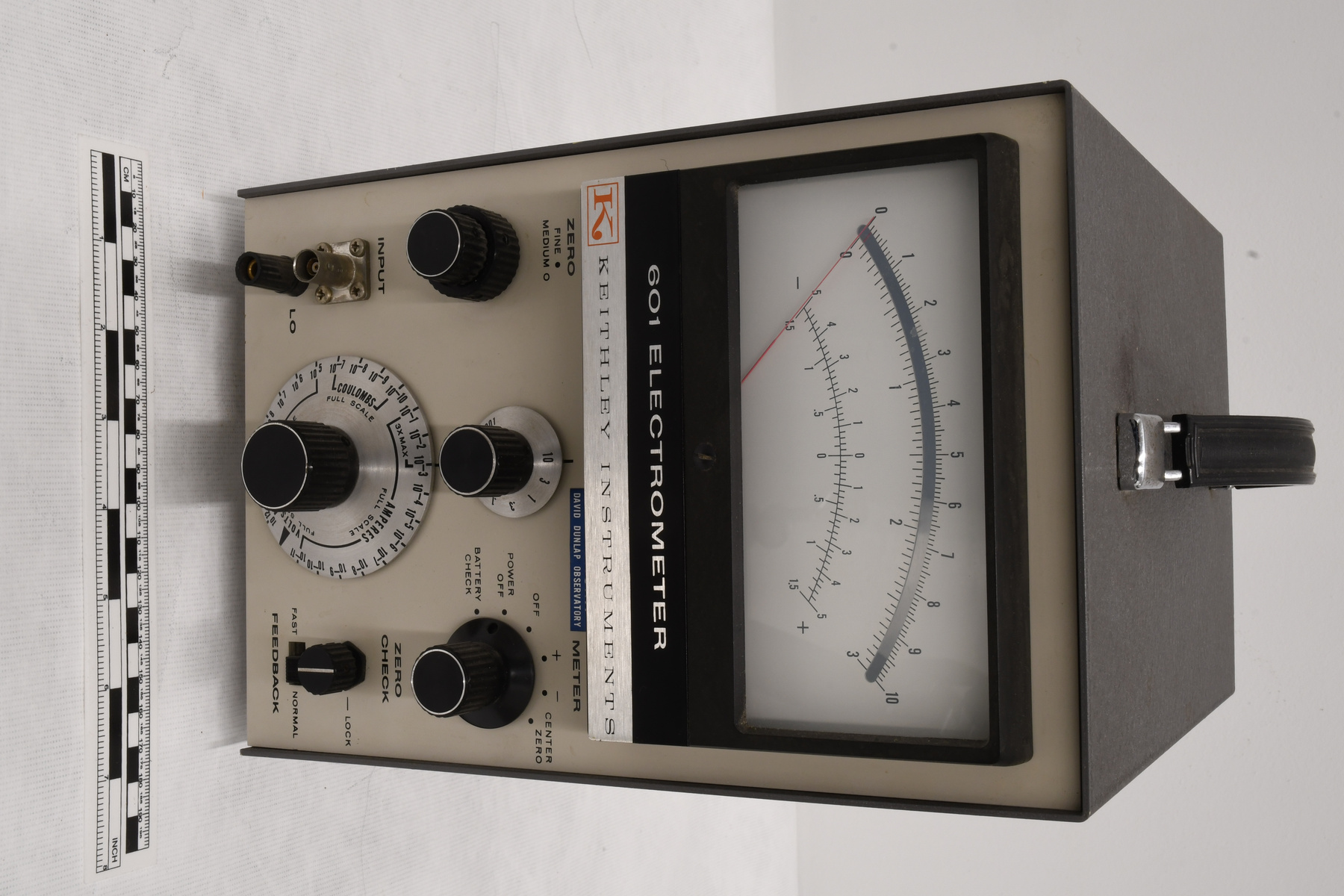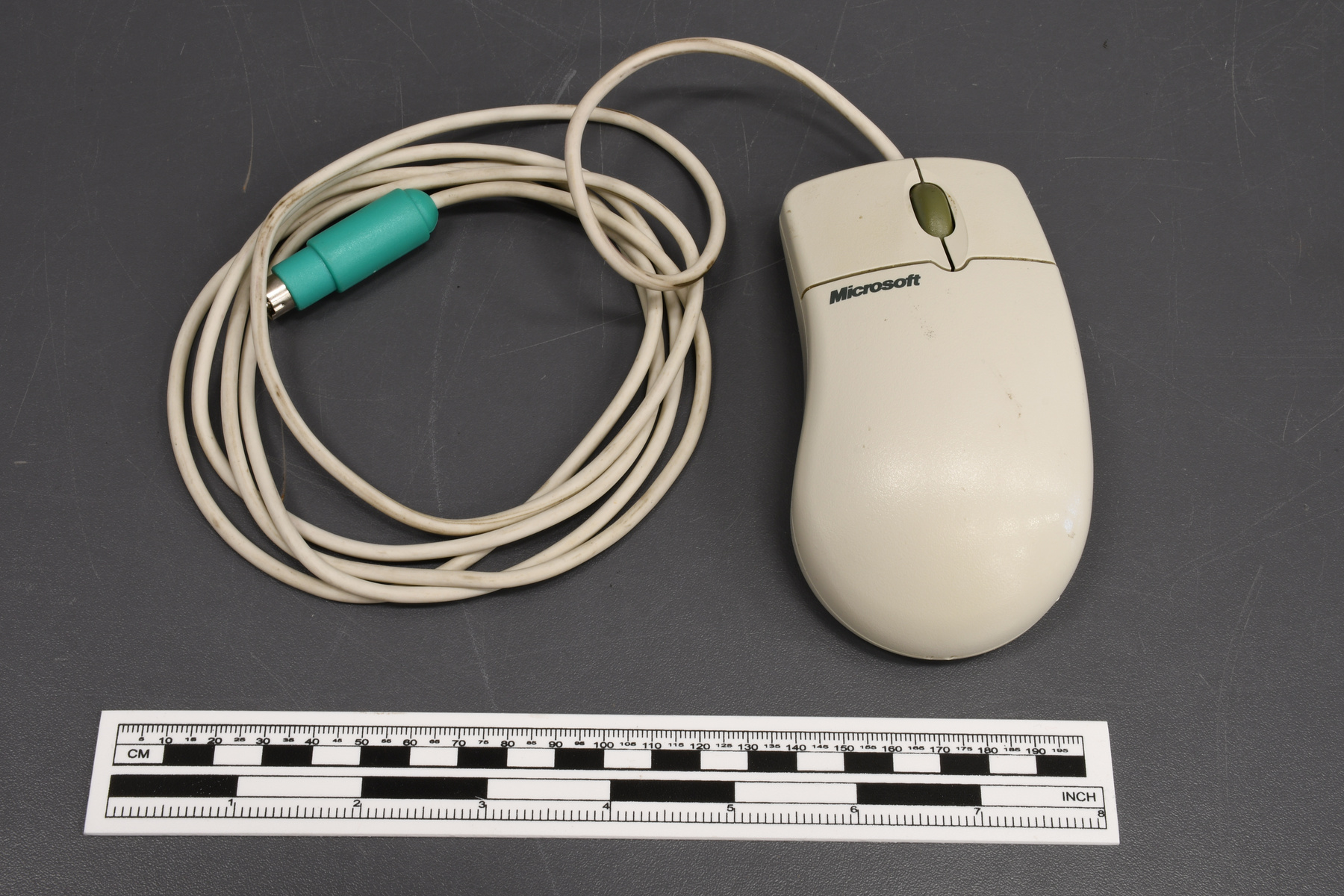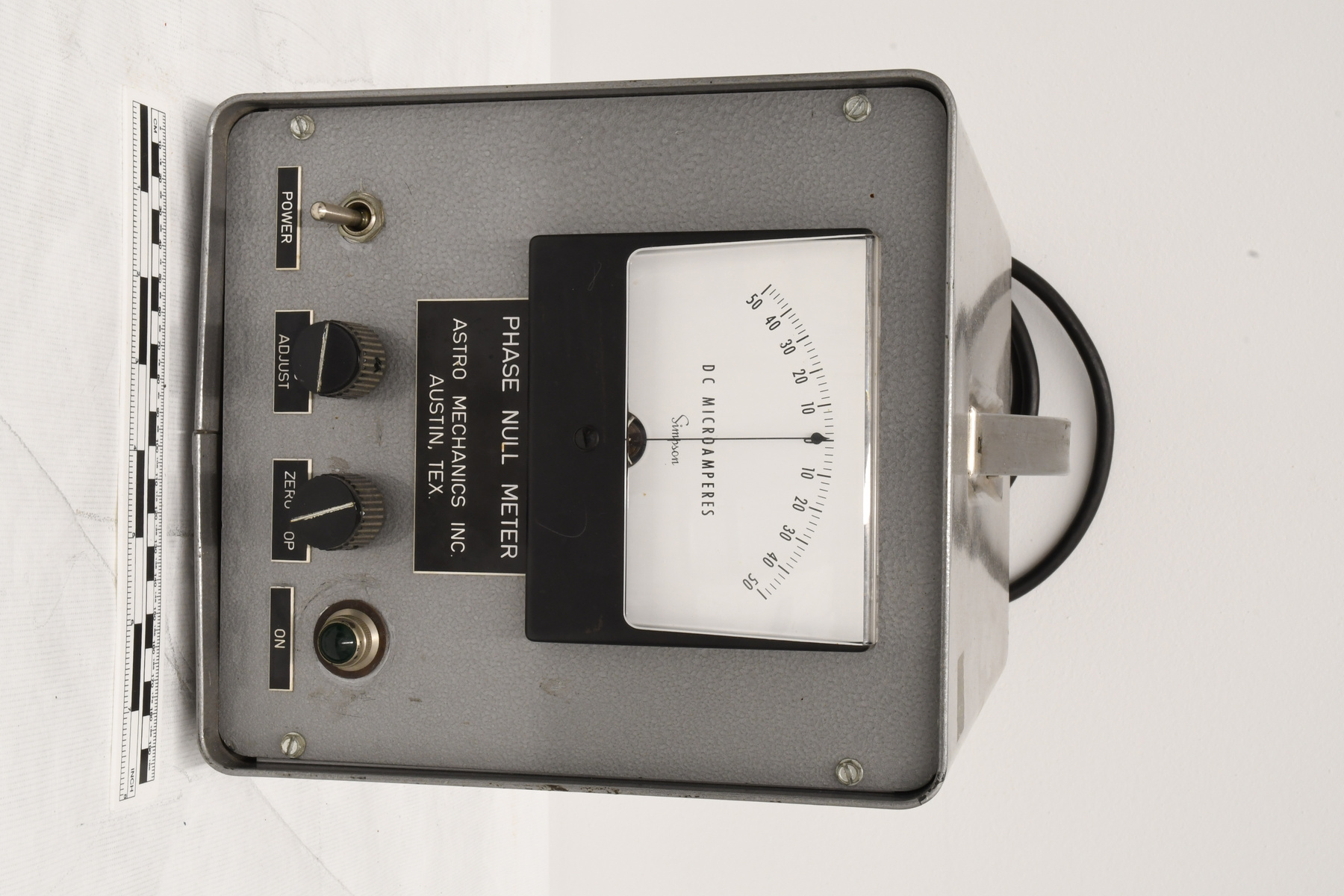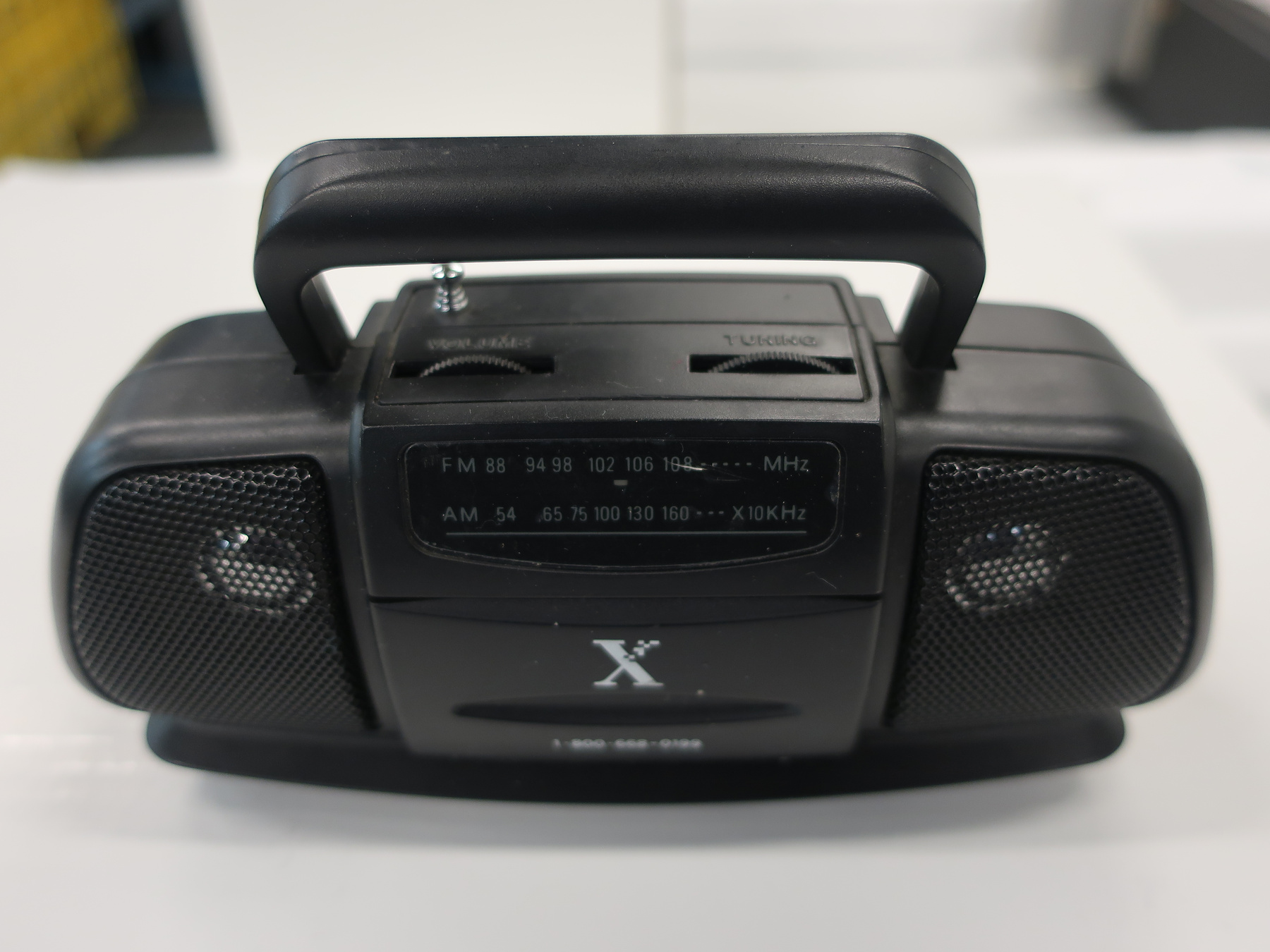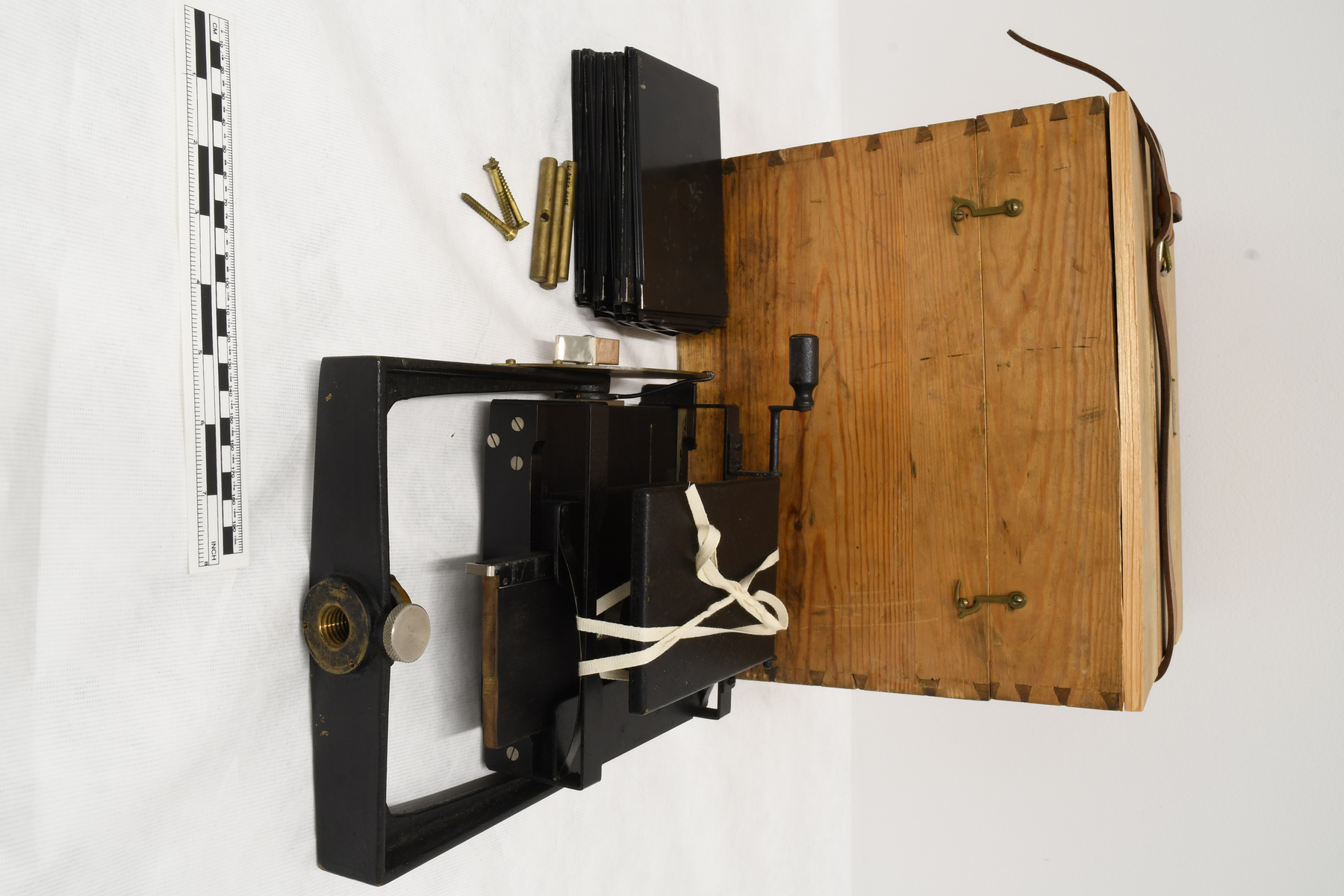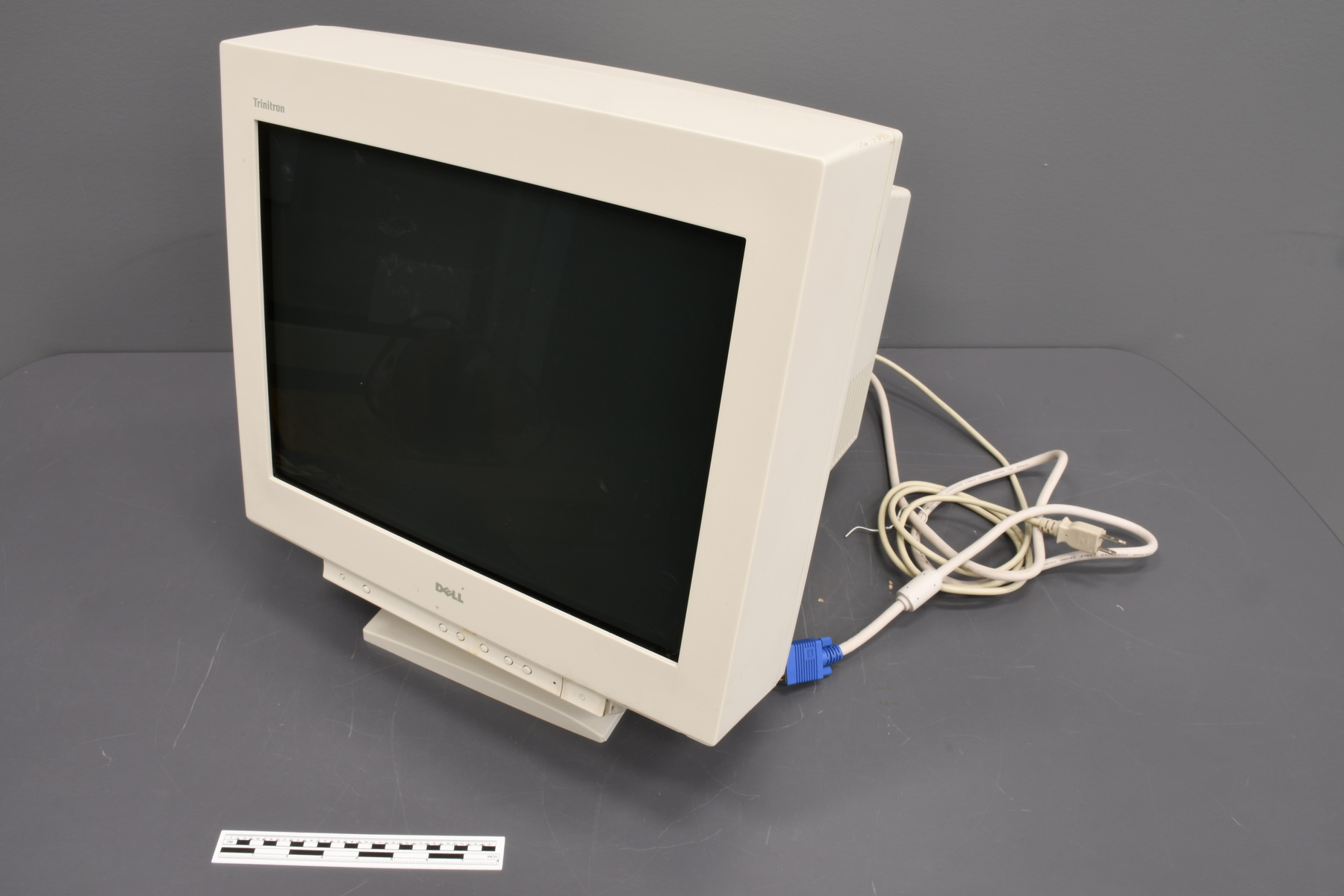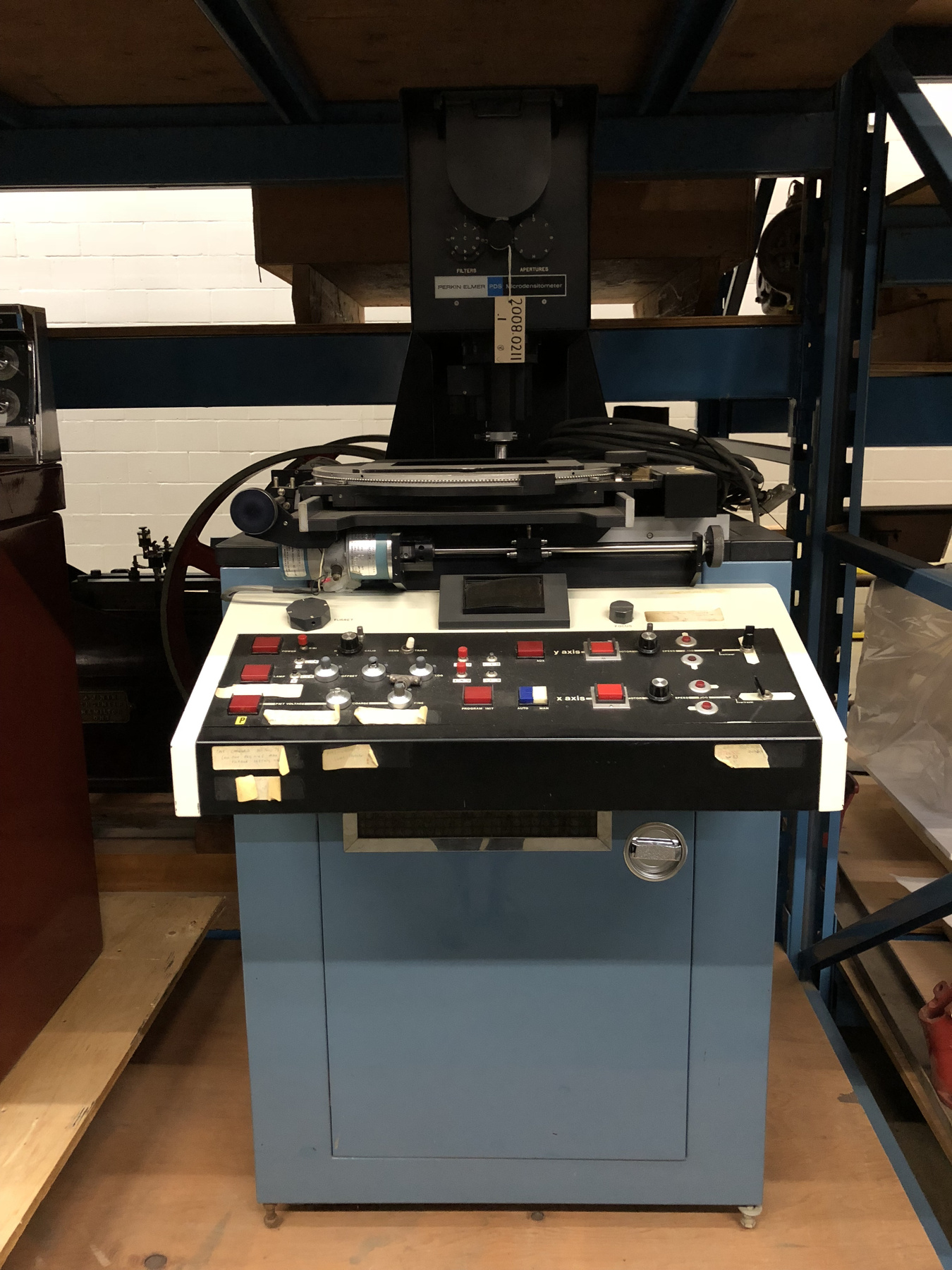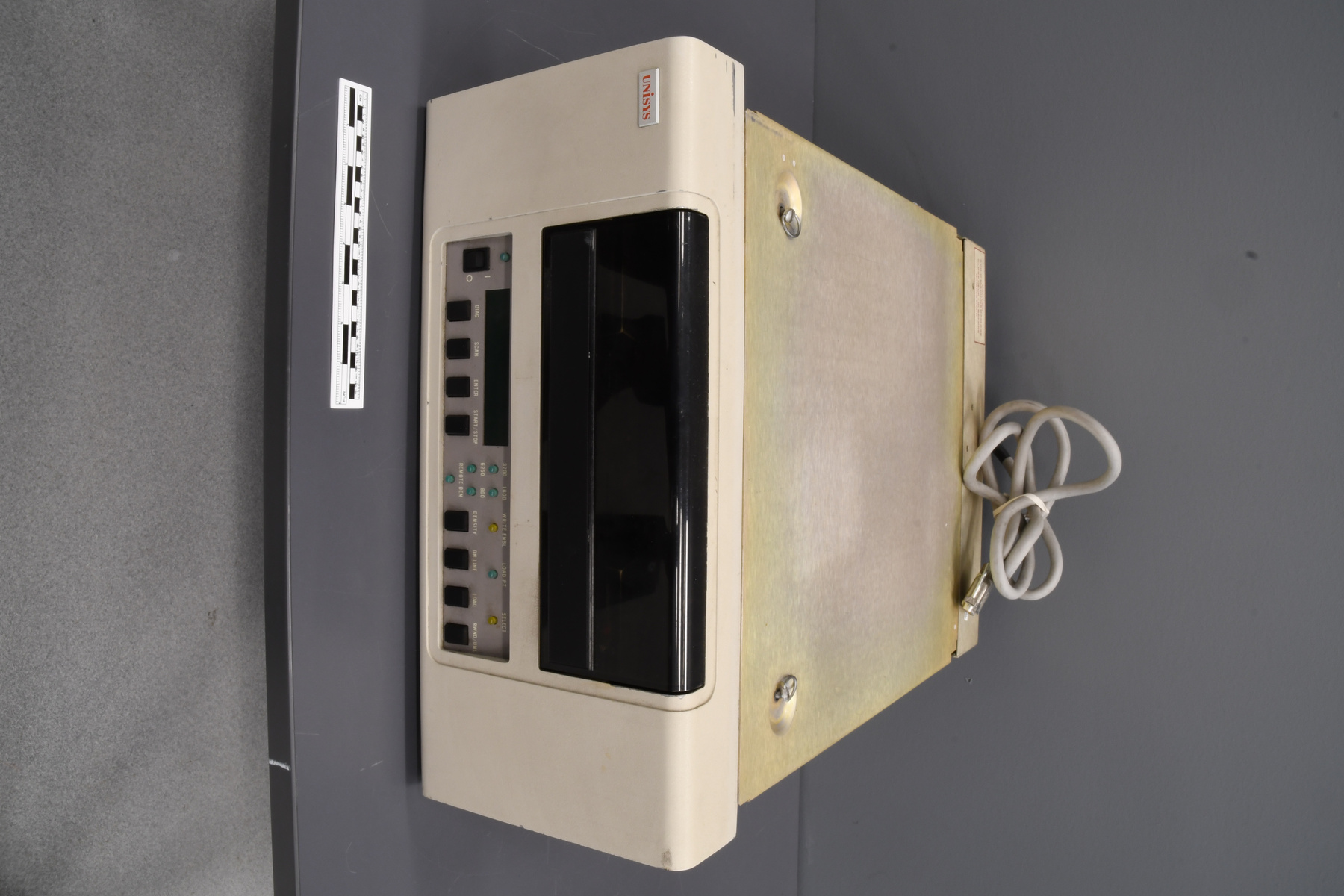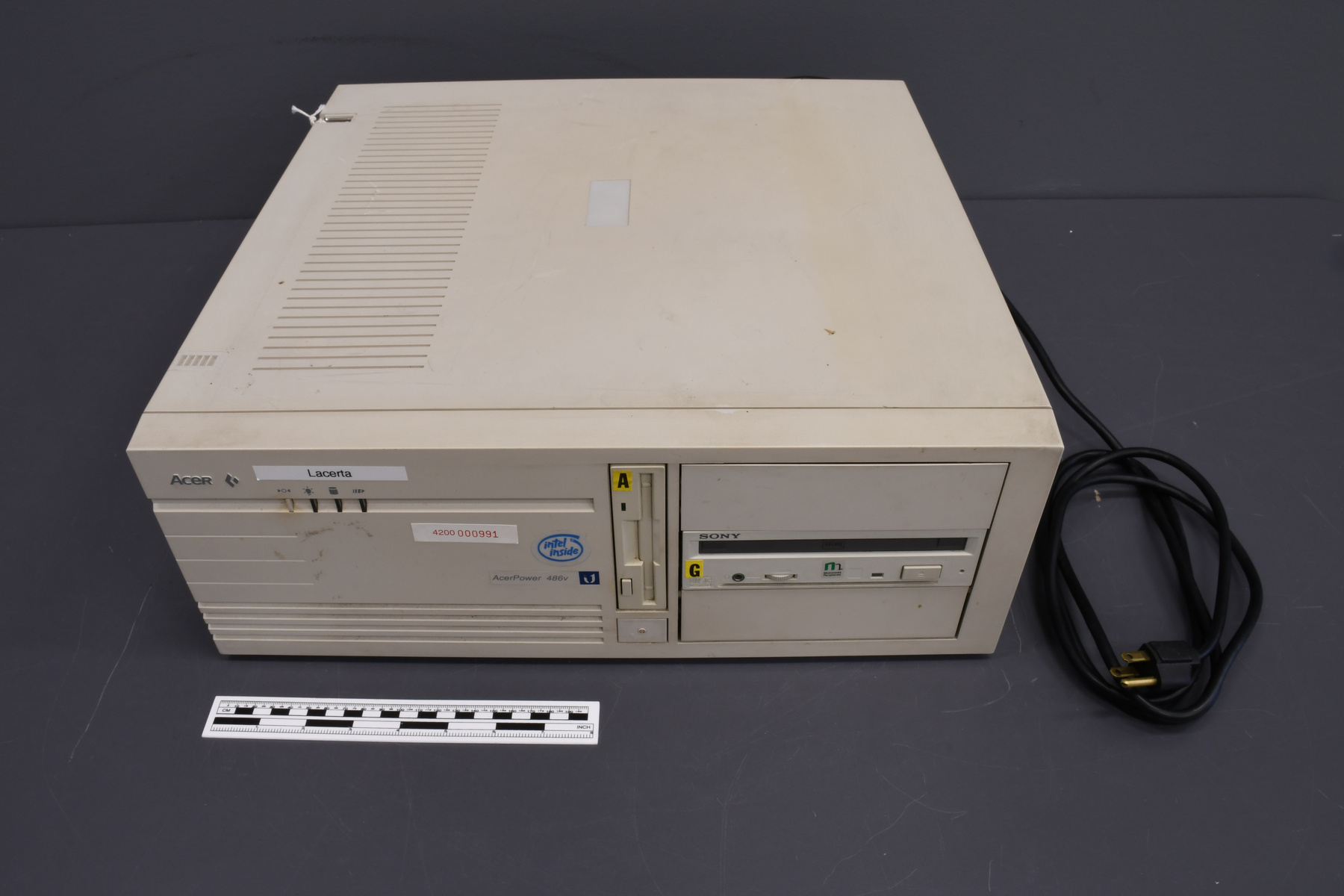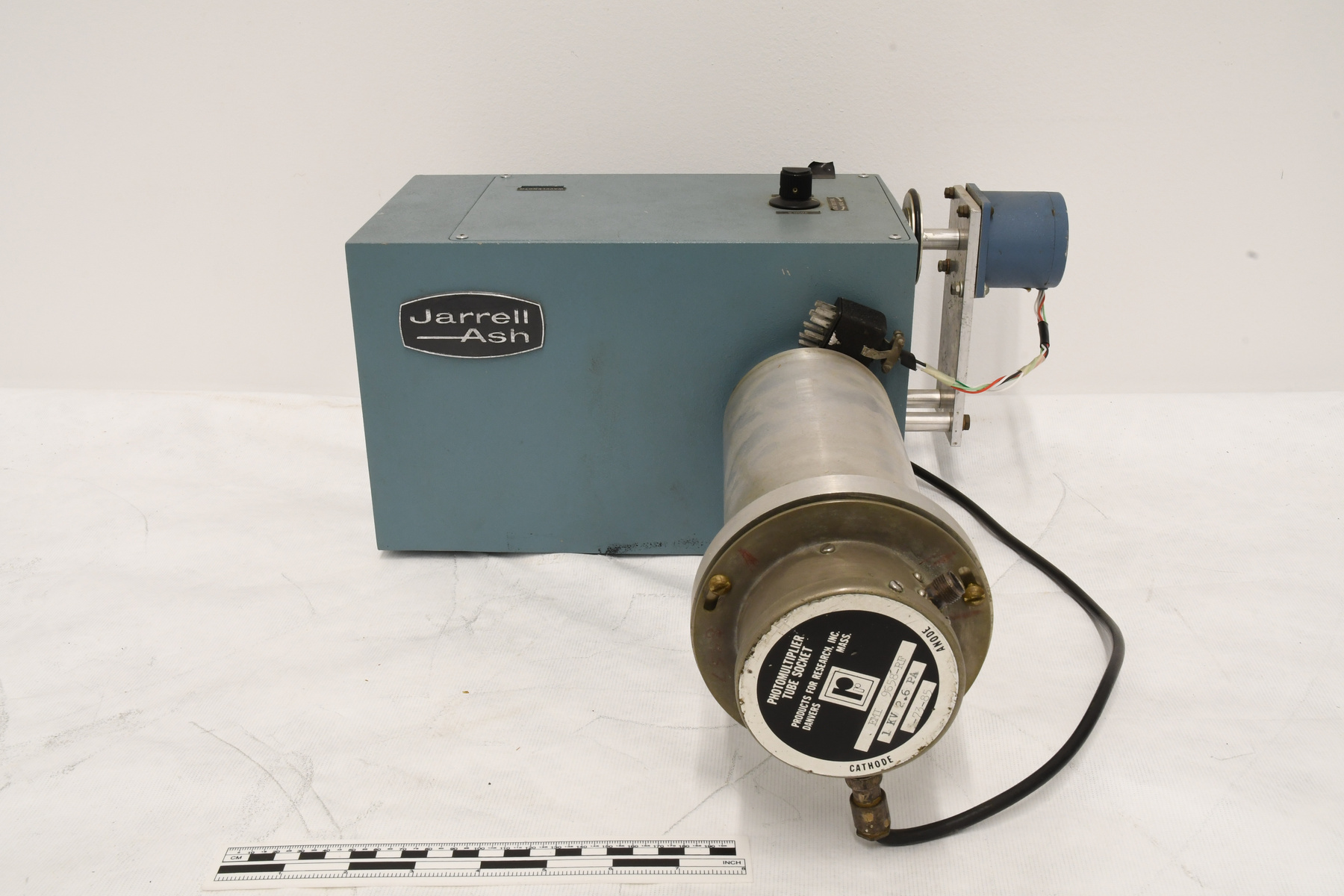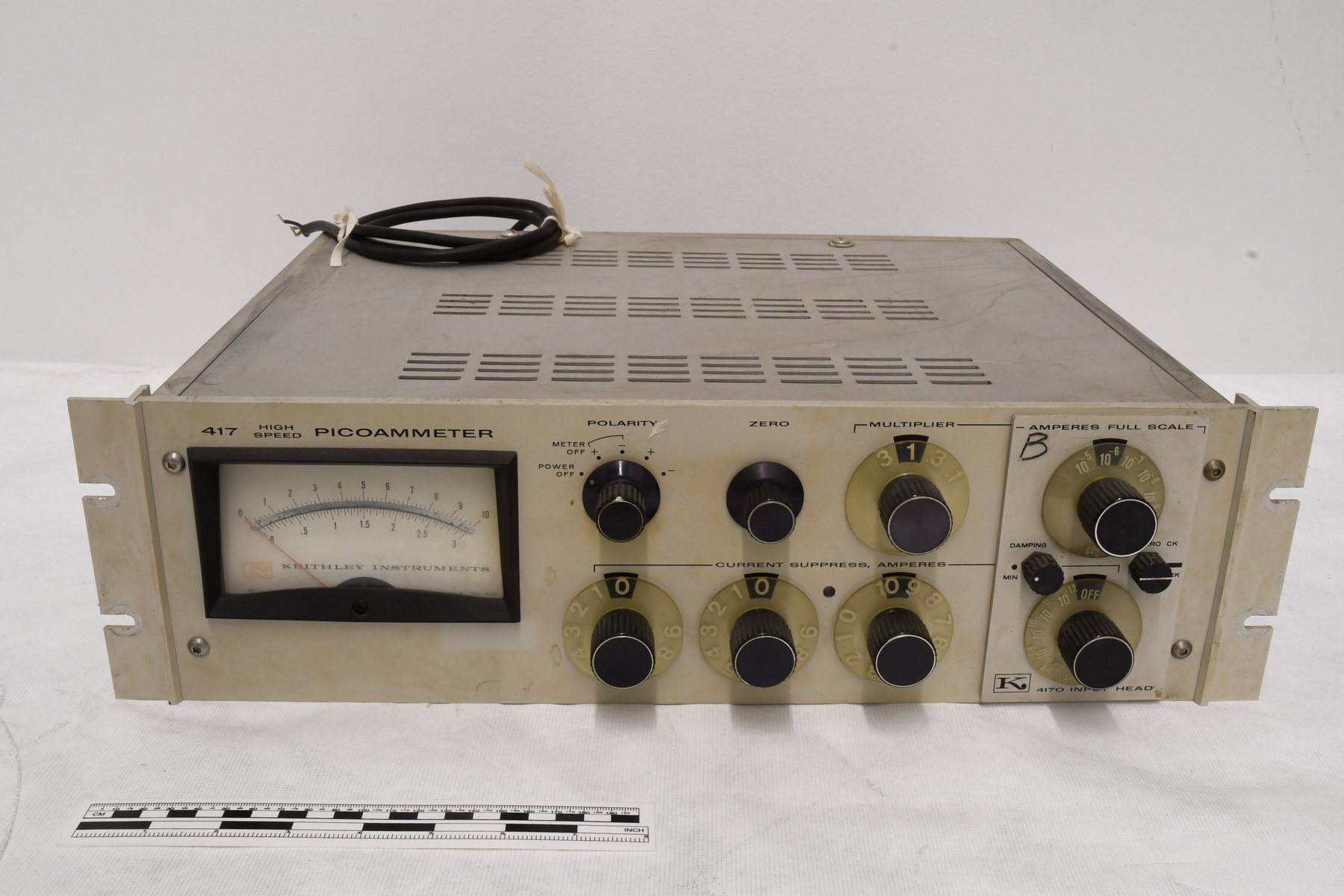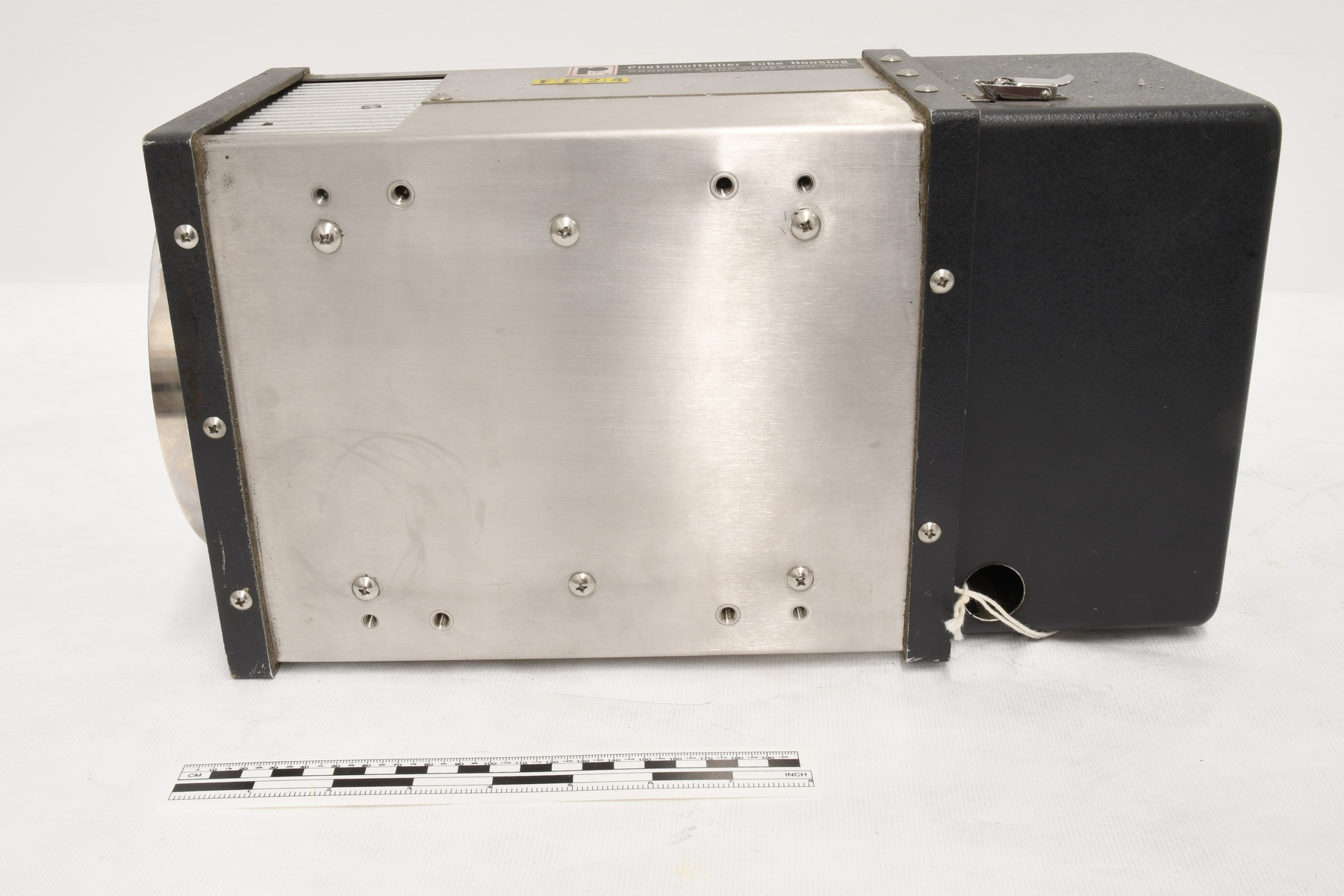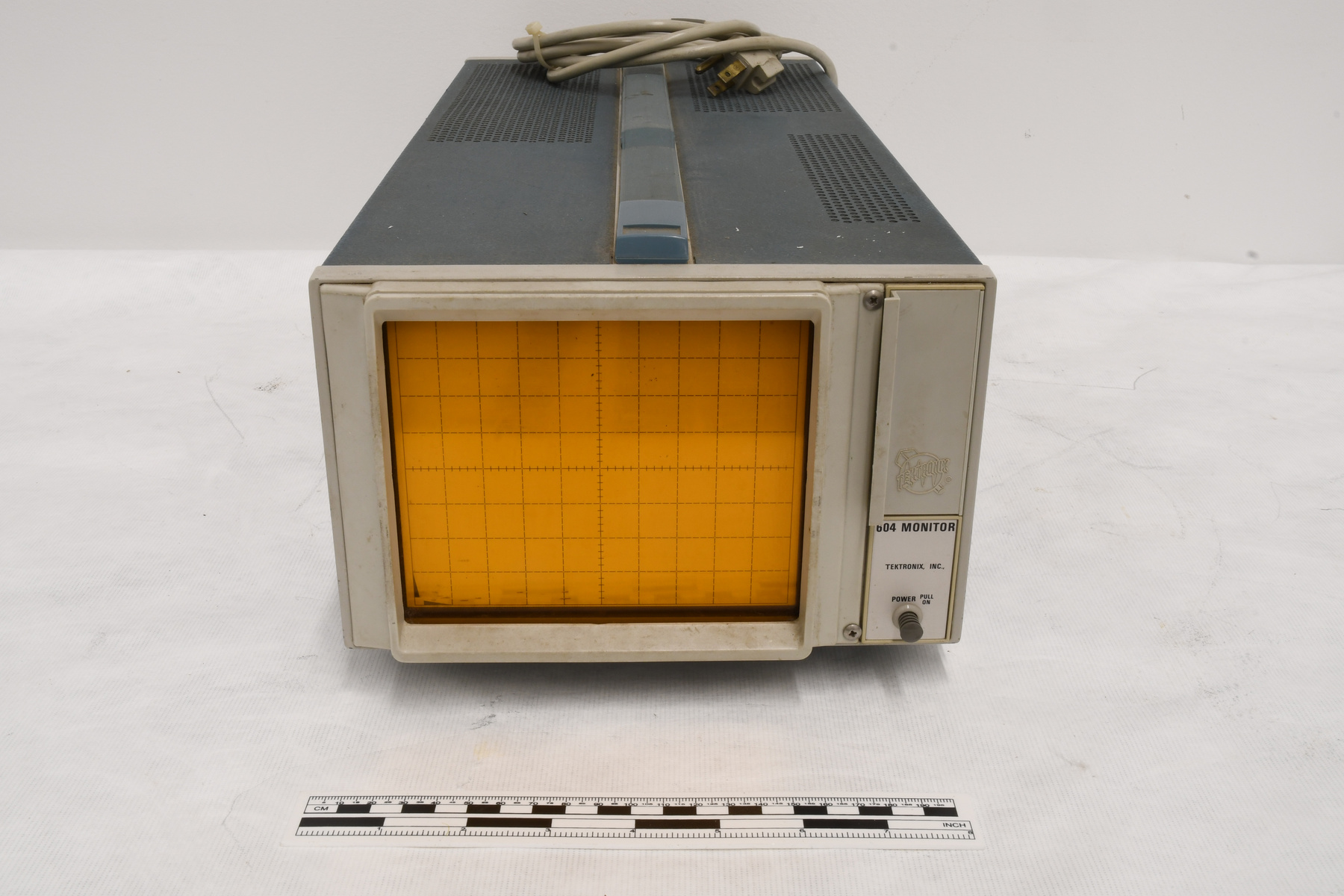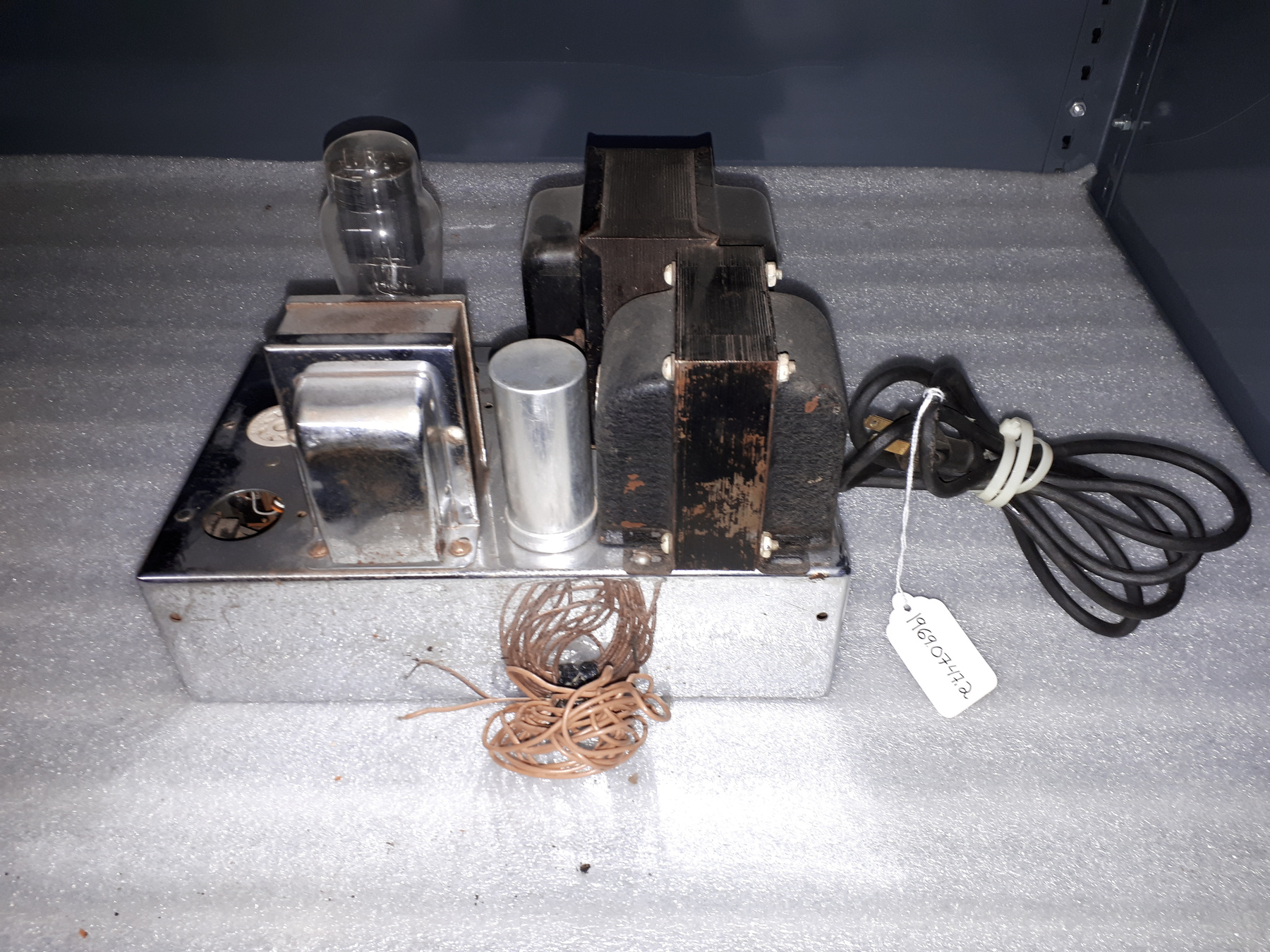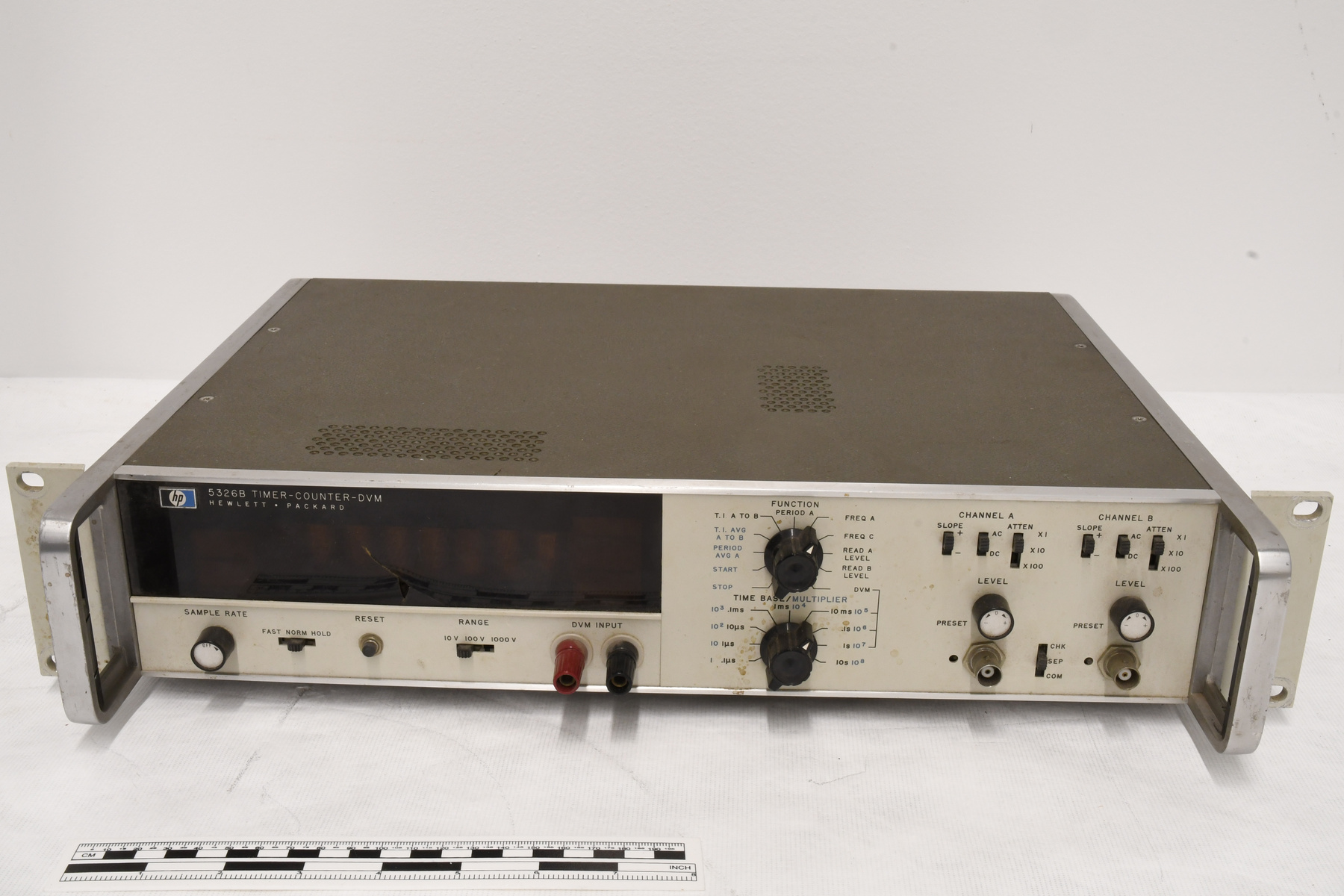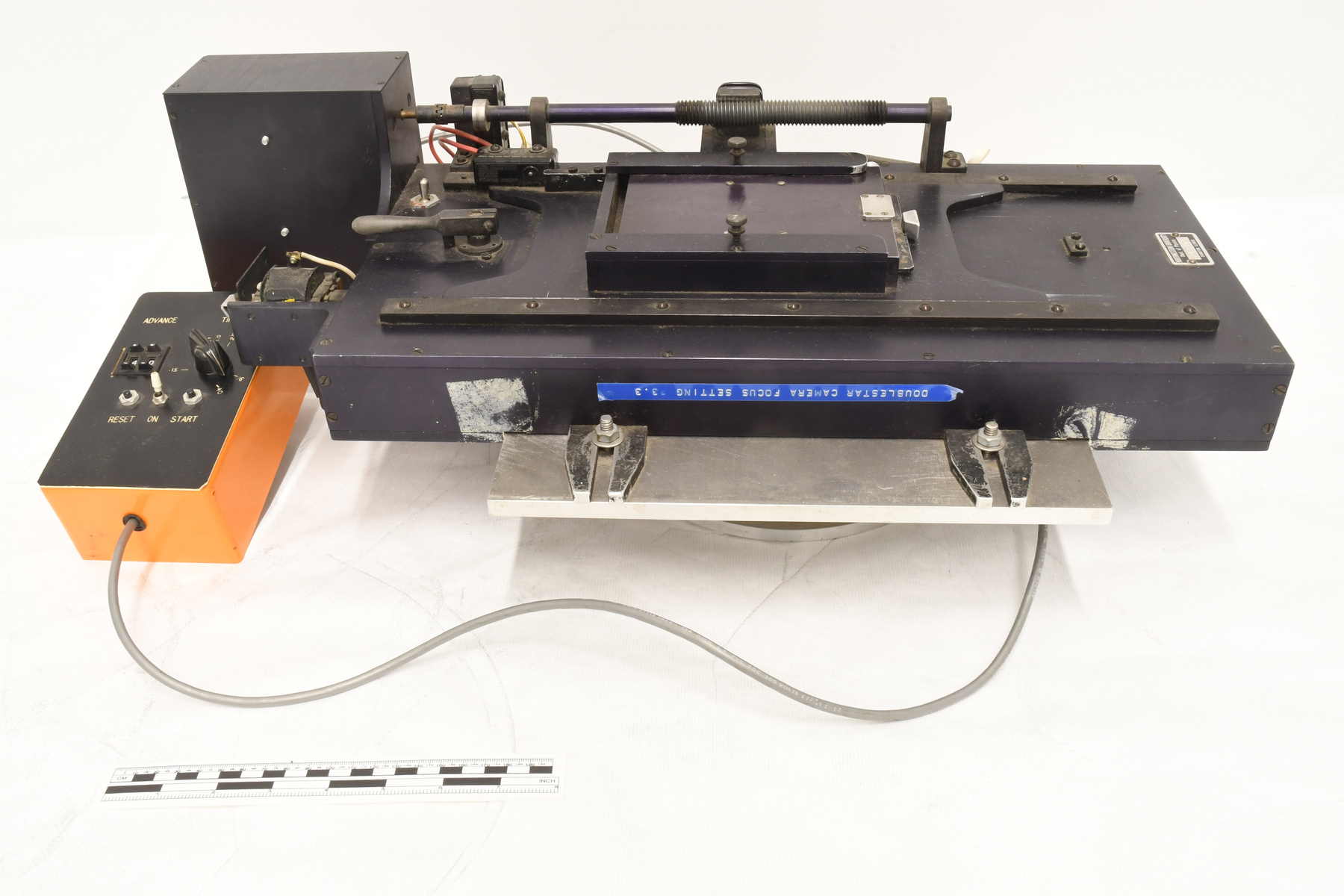Porte-plaques photographique
Utiliser cette image
Puis-je réutiliser cette image sans autorisation? Oui
Les images sur le portail de la collection d’Ingenium ont la licence Creative Commons suivante :
Copyright Ingenium / CC BY-NC-ND (Attribution-NonCommercial 4.0 International (CC BY-NC 4.0)
ATTRIBUER CETTE IMAGE
Ingenium,
2008.0190.001
Permalien:
Ingenium diffuse cette image sous le cadre de licence Creative Commons et encourage son téléchargement et sa réutilisation à des fins non commerciales. Veuillez mentionner Ingenium et citer le numéro de l’artefact.
TÉLÉCHARGER L’IMAGEACHETER CETTE IMAGE
Cette image peut être utilisée gratuitement pour des fins non commerciales.
Pour un usage commercial, veuillez consulter nos frais de reproduction et communiquer avec nous pour acheter l’image.
- TYPE D’OBJET
- astronomical
- DATE
- Inconnu
- NUMÉRO DE L’ARTEFACT
- 2008.0190.001
- FABRICANT
- Northwestern University
- MODÈLE
- Inconnu
- EMPLACEMENT
- Evanston, Illinois, United States of America
Plus d’information
Renseignements généraux
- Nº de série
- 4
- Nº de partie
- 1
- Nombre total de parties
- 2
- Ou
- S/O
- Brevets
- S/O
- Description générale
- Metal chassis and casings, parts/ Synthetic controls, wire covering and parts
Dimensions
Remarque : Cette information reflète la taille générale pour l’entreposage et ne représente pas nécessairement les véritables dimensions de l’objet.
- Longueur
- 60,0 cm
- Largeur
- 37,5 cm
- Hauteur
- 18,5 cm
- Épaisseur
- S/O
- Poids
- S/O
- Diamètre
- S/O
- Volume
- S/O
Lexique
- Groupe
- Astronomie
- Catégorie
- Divers
- Sous-catégorie
- S/O
Fabricant
- Ou
- University
- Pays
- United States of America
- État/province
- Illinois
- Ville
- Evanston
Contexte
- Pays
- Canada
- État/province
- Ontario
- Période
- Inconnu
- Canada
-
An instrument used at the David Dunlap Observatory at the University of Toronto, one of Canada's most important astronomical observatories. The David Dunlap Observatory opened in 1935 as the result of a bequest from the wife of David Dunlap. The telescope was a 74 inch (188 cm) reflector built by Grubb Parsons of Newcastle-upon-Tyne in England. The 74 inch was then the largest telescope in Canada (surpassing the 72 inch telescope of the Dominion Astrophysical Observatory in Victoria) and became the second largest in the world after the 100 inch Hooker Telescope of the Mt. Wilson Observatory outside Los Angeles. DDO's reputation grew and following WWII, it began to graduate most of the astronomers produced in Canada with University of Western Ontario far behind. Beginning in the 1960s a number of other astronomy departments were created but UofT/DDO held its place, a position it probably still holds. The DDO had a good technical staff which gave them an advantage and, with most of the 1940s to early 1970s top astronomers coming from UofT, grants from NRC and then ENSERC were almost guaranteed and allowed UofT's top astronomers -- Hogg, van den Berg, Fernie, Bolton, Kamper, Martin, etc. to acquire or build some of the best equipment available in university observatories. For optical observatories, only the DAO had technical staff and budgets that surpassed those of DDO. In 2007, citing increasing light pollution, the University of Toronto announced plans to sell the Observatory property. In June 2008, it was sold to Corsica Development Inc., a subsidiary of Metrus Development Inc. and the Observatory was closed. In 2009 the Observatory buildings and 80% of the site were designated a cultural heritage landscape. Also in 2009 Corsica and the Royal Astronomical Society of Canada, Toronto Centre announced an agreement allowing the RASC to provide public education and outreach programs at the observatory, and to operate the 188 cm telescope. - Fonction
-
A device used which held photographic plates, used with a telescope in an astronomical observatory. - Technique
-
Use by Dr. Karl Kamper, probably on DDO's 24 inch telescope and possibly on the University of Toronto's 24 inch Helen Sawyer Hogg telescope in Chile at the Las Campanas Observatory. That facility is an astronomical observatory owned and operated by the Carnegie Institution for Science. From 1971 to 1997, the University of Toronto operated a 60-cm telescope in the desert mountains of north-central Chile at Las Campanas. This small instrument, known as the Helen Sawyer Hogg 60-cm telescope, provided optical astronomers with a distinctive window to the southern skies. It was the only telescope in the Southern Hemisphere operated by Canada. Further, it and the Canada-France-Hawaii Telescope were the only Canadian telescopes at sites enjoying predominantly clear skies. UTSO [University of Toronto Southern Observatory]was located on Cerro Las Campanas, near the southern edge of the Atacama Desert (the driest in the world), where the air is clear and the atmospheric turbulence is low. During a good year, 85% of the nights are usable and 65% are photometric. As a small telescope with good equipment at a clear, dark site with excellent seeing conditions, the HSHT filled a unique and very productive niche [Ref. 2]. - Notes sur la région
-
Inconnu
Détails
- Marques
- Plate on chassis reads 'NORTHWESTERN UNIVERSITY/ Dept. of Physics/ SER.NO. 4/ EVANSTON, ILLINOIS'/ White lettering for control functions on control box/ Pressure printed label on chassis reads 'DOUBLESTAR CAMERA FOCUS SETTING 3.3'
- Manque
- Unknown
- Fini
- Painted glossy black/ Metallic grey parts/ Multicoloured synthetic parts/ Control box casing painted glossy orange with glossy black painted front; black and white synthetic controls; grey cable covering, plated hook
- Décoration
- S/O
FAIRE RÉFÉRENCE À CET OBJET
Si vous souhaitez publier de l’information sur cet objet de collection, veuillez indiquer ce qui suit :
Northwestern University, Porte-plaques photographique, Date inconnue, Numéro de l'artefact 2008.0190, Ingenium - Musées des sciences et de l'innovation du Canada, http://collection.ingeniumcanada.org/fr/item/2008.0190.001/
RÉTROACTION
Envoyer une question ou un commentaire sur cet artefact.
Plus comme ceci

